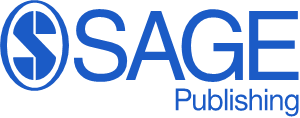Pinkfish AI: The Future of Automation is Conversational
February 13, 2025, 5:19 am

Location: United States, California, Los Angeles
Employees: 201-500
Founded date: 2011
Total raised: $100M

Location: United Kingdom, England, London
Employees: 1001-5000
Founded date: 1965
In the bustling world of technology, a new player is making waves. Pinkfish AI has emerged as a beacon of innovation in the realm of automation. With a fresh approach, it’s redefining how enterprises automate their processes. The company recently secured $7.6 million in pre-seed funding, led by Norwest Venture Partners. This financial boost is set to accelerate their mission: to make automation accessible to everyone, regardless of technical expertise.
Imagine a world where creating automation is as simple as having a chat. Pinkfish AI is turning that vision into reality. Their generative automation platform allows users to describe their needs in natural language. No coding skills? No problem. This platform is designed for the everyday user, empowering operations, services, and IT teams to streamline their workflows without the usual hurdles.
The traditional landscape of automation is often marred by complexity. Companies invest heavily in tools that promise efficiency but deliver frustration. Long deployment cycles and the need for specialized knowledge can leave teams overwhelmed. Pinkfish AI aims to change that narrative. By harnessing the power of generative AI, they offer a solution that is both intuitive and robust.
Their platform is already in use by notable clients like IPSY, Humach, and Sage Publications. These organizations are witnessing significant efficiency gains. Automations that once took months to implement can now be deployed in mere hours. This speed is a game-changer. It allows businesses to respond to challenges swiftly, keeping them agile in a fast-paced market.
The founders of Pinkfish AI, Charanya Kannan and Ben Rigby, bring a wealth of experience to the table. Kannan, previously a chief product and technology officer at Talkdesk, played a pivotal role in scaling the company to a $10 billion valuation. Rigby, also from Talkdesk, has a strong background in AI. Their combined expertise is evident in the design and functionality of the Pinkfish platform.
The generative automation platform stands out for several reasons. First, it eliminates the need for coding. Users can simply articulate their requirements, and the platform collaborates to build a solution. This approach democratizes automation, allowing anyone in the organization to contribute to process improvements.
Second, the platform ensures deterministic execution. This means that once an automation is set up, it runs consistently and reliably. Whether the task is simple or complex, users can trust that the results will meet their expectations. This reliability is crucial for enterprises that depend on precision in their operations.
Moreover, Pinkfish AI incorporates self-healing capabilities. The platform can detect changes in the environment and automatically suggest fixes. This feature reduces downtime and keeps operations running smoothly. It’s like having a safety net that catches issues before they escalate.
The platform also boasts over 200 integrations, covering a wide range of systems and applications. This flexibility allows businesses to connect various tools and data sources seamlessly. Whether it’s managing customer interactions or processing documents, Pinkfish AI can handle it all.
The potential for growth in the AI agent market is staggering. Recent studies predict it will soar from $5 billion last year to over $47 billion by 2030. As businesses increasingly seek to automate repetitive tasks, the demand for user-friendly solutions like Pinkfish AI will only rise. The company is well-positioned to capitalize on this trend.
Investors are taking notice. Norwest’s Scott Beechuk highlighted Pinkfish’s unique position in the market. While many companies focus on either self-service for small businesses or heavy implementations for large enterprises, Pinkfish strikes a balance. They offer a self-service model tailored for the enterprise, making it easier for organizations to adopt automation at scale.
As Pinkfish AI continues to innovate, the landscape of enterprise automation is set to transform. The company’s focus on user experience and accessibility will resonate with businesses looking to enhance their operations. In a world where time is money, the ability to automate processes quickly and efficiently is invaluable.
In conclusion, Pinkfish AI is not just another tech startup. It’s a harbinger of change in the automation space. By making automation conversational, they are breaking down barriers and empowering users across the enterprise. As they roll out their platform more widely, the impact on businesses could be profound. The future of automation is here, and it speaks your language.
Imagine a world where creating automation is as simple as having a chat. Pinkfish AI is turning that vision into reality. Their generative automation platform allows users to describe their needs in natural language. No coding skills? No problem. This platform is designed for the everyday user, empowering operations, services, and IT teams to streamline their workflows without the usual hurdles.
The traditional landscape of automation is often marred by complexity. Companies invest heavily in tools that promise efficiency but deliver frustration. Long deployment cycles and the need for specialized knowledge can leave teams overwhelmed. Pinkfish AI aims to change that narrative. By harnessing the power of generative AI, they offer a solution that is both intuitive and robust.
Their platform is already in use by notable clients like IPSY, Humach, and Sage Publications. These organizations are witnessing significant efficiency gains. Automations that once took months to implement can now be deployed in mere hours. This speed is a game-changer. It allows businesses to respond to challenges swiftly, keeping them agile in a fast-paced market.
The founders of Pinkfish AI, Charanya Kannan and Ben Rigby, bring a wealth of experience to the table. Kannan, previously a chief product and technology officer at Talkdesk, played a pivotal role in scaling the company to a $10 billion valuation. Rigby, also from Talkdesk, has a strong background in AI. Their combined expertise is evident in the design and functionality of the Pinkfish platform.
The generative automation platform stands out for several reasons. First, it eliminates the need for coding. Users can simply articulate their requirements, and the platform collaborates to build a solution. This approach democratizes automation, allowing anyone in the organization to contribute to process improvements.
Second, the platform ensures deterministic execution. This means that once an automation is set up, it runs consistently and reliably. Whether the task is simple or complex, users can trust that the results will meet their expectations. This reliability is crucial for enterprises that depend on precision in their operations.
Moreover, Pinkfish AI incorporates self-healing capabilities. The platform can detect changes in the environment and automatically suggest fixes. This feature reduces downtime and keeps operations running smoothly. It’s like having a safety net that catches issues before they escalate.
The platform also boasts over 200 integrations, covering a wide range of systems and applications. This flexibility allows businesses to connect various tools and data sources seamlessly. Whether it’s managing customer interactions or processing documents, Pinkfish AI can handle it all.
The potential for growth in the AI agent market is staggering. Recent studies predict it will soar from $5 billion last year to over $47 billion by 2030. As businesses increasingly seek to automate repetitive tasks, the demand for user-friendly solutions like Pinkfish AI will only rise. The company is well-positioned to capitalize on this trend.
Investors are taking notice. Norwest’s Scott Beechuk highlighted Pinkfish’s unique position in the market. While many companies focus on either self-service for small businesses or heavy implementations for large enterprises, Pinkfish strikes a balance. They offer a self-service model tailored for the enterprise, making it easier for organizations to adopt automation at scale.
As Pinkfish AI continues to innovate, the landscape of enterprise automation is set to transform. The company’s focus on user experience and accessibility will resonate with businesses looking to enhance their operations. In a world where time is money, the ability to automate processes quickly and efficiently is invaluable.
In conclusion, Pinkfish AI is not just another tech startup. It’s a harbinger of change in the automation space. By making automation conversational, they are breaking down barriers and empowering users across the enterprise. As they roll out their platform more widely, the impact on businesses could be profound. The future of automation is here, and it speaks your language.

